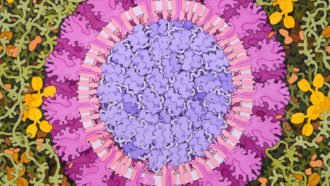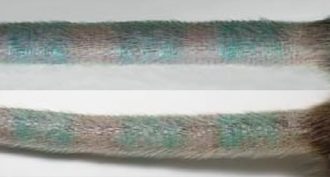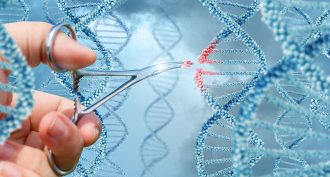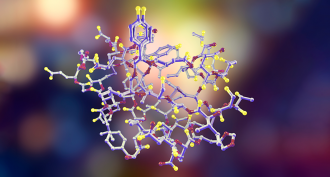HS-LS1-1
Construct an explanation based on evidence for how the structure of DNA determines the structure of proteins which carry out the essential functions of life through systems of specialized cells.
-
 Health & Medicine
Health & MedicineSearch speeds up for vaccine against the new coronavirus
Scientists are investigating unusual ways to make drugs to prevent viral infections. One may even be able to treat already sick people.
-
 Genetics
GeneticsExplainer: How DNA testing works
Lots of companies will now test DNA from people and their pets. How do these gene-sequencing techniques work? We explain.
-
 Animals
AnimalsHunting hidden salamanders with eDNA
The Japanese clouded salamander is an elusive beast. To find a new population, three teens turned to high-tech methods.
-
 Genetics
GeneticsYour DNA is an open book — but can’t yet be fully read
There are many companies that offer to read your DNA. But be prepared: They cannot yet fulfill all those promises you read in their ads.
-
 Animals
AnimalsOrca snot leads to a whale of a science-fair project
DNA found in the mucus of orcas suggests that even though the traits of family pods may differ, these marine mammals all appear to belong to a single species.
By Sid Perkins -
 Life
LifeInked mice hint at how tattoos live on
Tattooed mice challenge our current understanding of how tattoos stay in humans.
By Dan Garisto -
 Chemistry
ChemistryCool Jobs: Diving for new medicines
Scientists mix research with underwater adventure as they search the oceans for new chemicals to treat infections, cancer and more.
-
 Genetics
GeneticsExplainer: DNA hunters
Snippets of DNA can be left behind by a passing organism. Some researchers now act as wildlife detectives to identify the sources of such cast-off DNA.
-
 Genetics
GeneticsExplainer: Why scientists sometimes ‘knock out’ genes
How do we learn what a particular molecule does in the body? To find out, scientists often 'knock out' the gene that makes it. Here’s how.
-
 Health & Medicine
Health & MedicineExplainer: What is a hormone?
Various tissues secrete special chemicals, known as hormones. They travel, usually in blood, to a particular distant site where they tell certain cells it’s time to go to work.
By Janet Raloff -
 Genetics
GeneticsExplainer: How CRISPR works
Scientists are using a tool called CRISPR to edit DNA in all types of cells.
-
 Genetics
GeneticsScientists Say: Chromosome
This threadlike structure is made of DNA wrapped around protein. It allows the 3 billion base pairs in human DNA to stay neatly packaged in a cell.